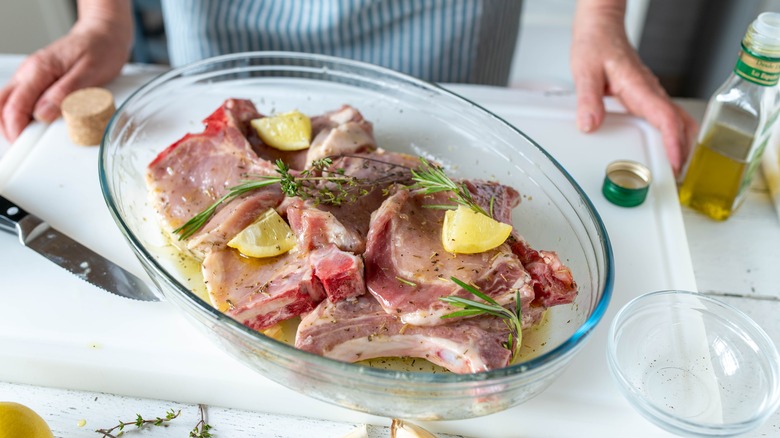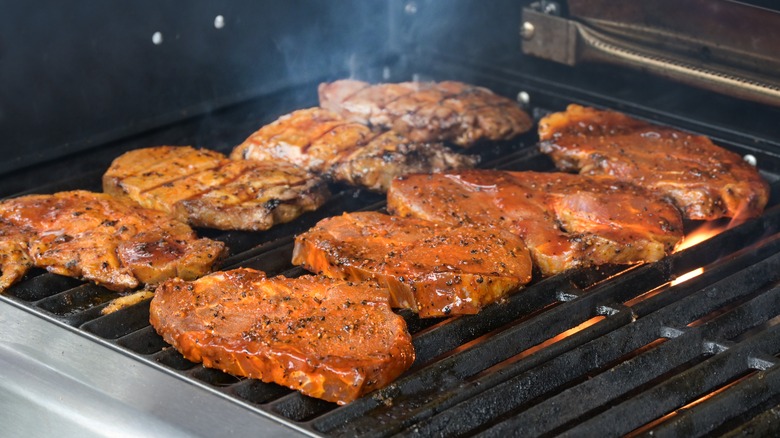Yes, You Can Use Too Much Oil In A Marinade
The goal when cooking meat is to achieve a beautifully savory flavor and a juicy, tender texture. One way to boost both is by marinating the protein before it hits the heat, and an oil-based basic marinade recipe is the go-to for many people. But why should we use oil — and is there such a thing as too much? Food Republic consulted a professional chef to get some exclusive expert advice.
When you're mixing up a marinade, "it's important to consider the ingredients and their effects on the meat," says K.C. Gulbro, who is the owner of FoxFire Restaurant and Copper Fox event venue in Geneva, Illinois as well as a Chef Ambassador for Certified Angus Beef®. He explains that "oil-based marinades can help enhance the texture," increase the moisture in leaner cuts, and "distribute flavors evenly across the meat." Using oil alongside an acid such as vinegar or citrus emulsifies a marinade, giving it a thicker consistency that easily coats the meat and ensures it carries any extra delicious flavors, such as salt, herbs, or spices, into the protein.
However, just as too much acid can ruin marinades, using the wrong amount of oil is also a mistake. "Too much oil may cause seepage and cause smoke to develop while cooking," warns Gulbro. "Consider the cooking method, too." So to get the best results, you also need to think about how you'll actually be cooking the meat once it's been marinated.
Tips for cooking successfully with oil-based marinades
Generally speaking, you need half a cup of marinade for each pound of meat, with a ratio of three parts oil, one part acid, and one part other flavorings. As well as imparting extra taste and tenderness, oil-based marinades create a tasty crust on meat since the fatty coating helps the surface cook faster. This is especially true when grilling — but, as chef K.C. Gulbro points out, too much oil can also risk unwanted smoke and flare ups.
Before grilling, drain off any excess oily marinade first, so it doesn't drip. A common oil mistake when cooking steak is using an oil with a low smoke point, resulting in burnt-tasting meat — use an oil with a high smoke point for grilling at high temperatures, such as safflower, canola, or peanut. Discard the marinade after use since it's been in contact with raw meat.
Marinating also tenderizes and adds flavor to tougher cuts in the oven. When roasting marinated meat, save the leftover marinade (you can bring it to a boil to make sure its still safe) then use it to baste the meat during its final half hour in the oven. If you're cooking with a skillet on the stovetop, however, then skip marinating altogether. The extra moisture can cause the meat to steam as it cooks, and you won't get the surface caramelization you're after. Instead, keep oil-based marinades for hot and dry cooking methods, such as grilling and roasting, where air can circulate.


